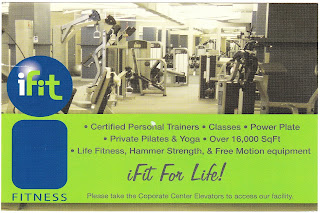What is it? It's a monthly event which benefits different charities. Someone volunteers the charity, to host and to be 100% on the hook for marketing the event to friends, colleagues, loved ones, etc. In turn, the hotel provides the venue, free passed appetizers and donates half of the bar tab to the charity. The tickets are free but are limited to the first 150 people to reserve. It's a great idea and kudos to Tom Martin as it is his brainchild.
Friends, in a period of 5 days, all tickets were reserved via the Eventbrite page (see our invite). The Drake generously added 25 more tickets and those were reserved quickly as well. There was also a waitlist of 50+ people. Up until the event, we were fielding numerous emails and calls from people trying to get a ticket. It was equally flattering and humbling.
How did we get so many people to sign up so quickly and to be so eager to attend? It was a four part cocktail of Facebook, Twitter, LinkedIn and YouTube. You see, but for these platforms, we would not have met many of these people at all. And, but for these platforms, we would not have been able to communicate the details of the event so quickly.
More critically and to the point, but for these platforms, these people would not have joined us to raise funds in the fight against Alzheimer's. Thanks to personal donations, the proceeds from the bar tab and a one night only SMS text donation program, we have the 2,947.5 reasons to believe social media can be used as a tool for social good, my #usguys friends.
However... Intensely social, human experiences matter.
I would like to point out is that we only learned about #Cocktails4Causes because we knew people who knew Sean McGinnis and were inspired by his wish to do good in January. Because we knew they were going to his event, we went and introduced ourselves to him. We would not have gone nor introduced ourselves had it not been for the people we knew (bonus: what a nice guy!).
I often joke that I learned about marketing during the time of the abacus. Given my "age" (ehem), I cling to the notion that it's the in person experiences which enhance what social platforms provide. As I started to write this, I remembered this post I wrote last year about scavenger hunts and marriage proposals as well as this one about food trucks. The tweet that inspired me then seems to resonate now:
"Get out of your nice comfortable office and meet with your potential customers. Use what you learn to create valuable stuff online." -- @dmscott
I'll never disagree with how disruptively wonderful these social media channels are but they mean nothing to me without a multisensory and intensely human experience to accompany them. The reason why the colleagues we've met either via social media showed up is because we previously chose to engage with them in person. And in some way, we touched them such that they chose to spend their dollars and time at this event. It would not have happened after a random follow or invitation to connect.
There's something about the texture of in person experiences that seem to make the difference. And, much like our experience in January, the people we knew brought lovely people that we were pleased to meet so the cycle continues. What makes these so powerful is the generosity of spirit and this vibrant organic energy that often accompany them.
Why wouldn't we want more of that? There's only so much you can get out of being parked in front of your laptop. There's so much that you miss. So, yes there are ways to use social media for social good.... But let's not forget the essence of social.
What say you? Please comment below and, if you've enjoyed reading this, please share with others.
Parissa Behnia
Idea Chef
678Partners@gmail.com
678Partners.com

